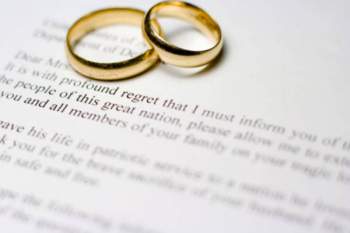
Marriage License Requirements

Popular In Marriage
Common Law Marriage Louisiana Common Law Marriage Massachusetts Common Law Marriage Nevada Common Law Marriage Ohio Marriage Certificate Common Law Marriage Kentucky Free Marriage Records Putative Marriage Definition Common Law Marriage Alaska Common Law Marriage Oklahoma Common Law Marriage Mississippi Common Law Marriage New Mexico
Predictably, the requirements for a marriage license vary by state. This is because there is no federal marriage license.
What are some requirements for marriage licenses in the United States?
Some states will set some of the following requirements:
- Age limits, usually 18, but lower in some states
o Persons younger than 18 must have the consent of a parent or judge; persons as young as 15 can be married in New York State, but only with the consent of both parents and a justice of the State Supreme Court or Family Court.
- Payment of a nominal marriage license fee
- Medical requirements
o Some states will require proof of immunizations against certain diseases such as tuberculosis and measles
o There may be blood tests to prove the absence of venereal diseases
o The state may also suggest a non-mandatory HIV test
- Proof that other marriages have been annulled or terminated
- Mental capacity to enter into a marital union
- The couple are not blood relatives
o First cousins may marry in some states, but the state may require that they not have children due to the high risks of genetic defects
- A marriage certificate, completed at the appropriate ceremony, must be mailed to the agency that issued the marriage license.
There may also be a variable waiting period, depending on the state. This is to allow for a cooling-off period for the couple to determine if they truly wish to be married. There waiting periods are:
- 1-day: Delaware, Illinois, New York, South Carolina
- 2-day: Maryland
- 3-day: Alaska, Iowa, Kansas, Louisiana, Maine, Massachusetts, Michigan, Mississippi, New Jersey, Oregon, Pennsylvania, Washington
- 5-day: District of Columbia, Minnesota
- 6-day: Wisconsin
The waiting period can be potentially waived or shorted depending on specific circumstances or through the intervention of a court that will shorten the waiting period on the couple’s behalf.
Among the quirkier laws for marriage licenses, the couple may be required to consummate the marriage through sexual relations. There is no way for the state to enforce this, but the lack of sexual relations can be used as the basis for divorce or annulment in many states.
Marriage laws are always subject to change, including variable fees, so one is best served by checking with their local county or city clerk that issues marriage licenses for information on fees and waiting periods.
NEXT: Marriage Records





















